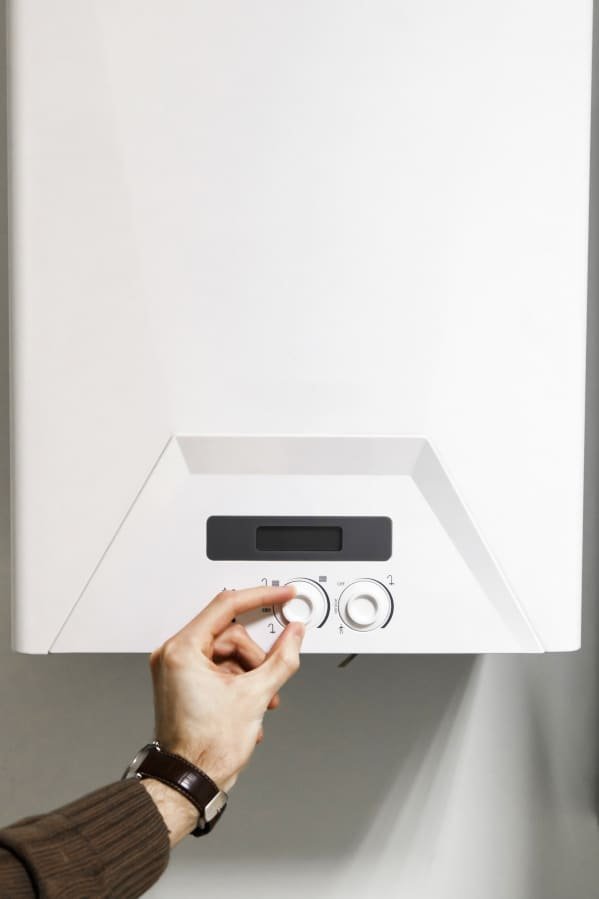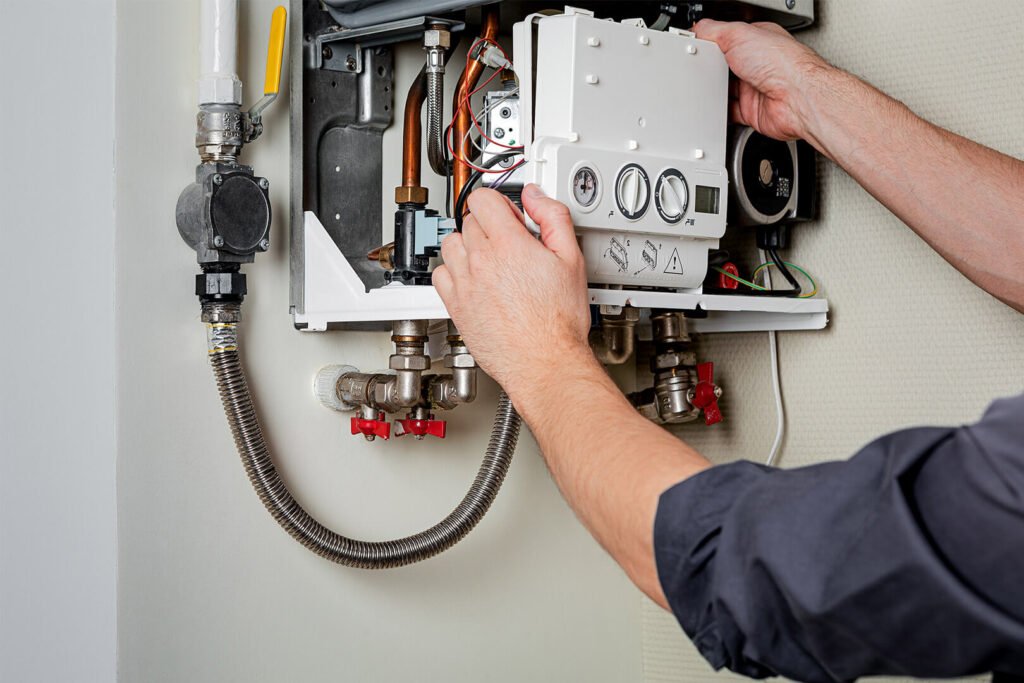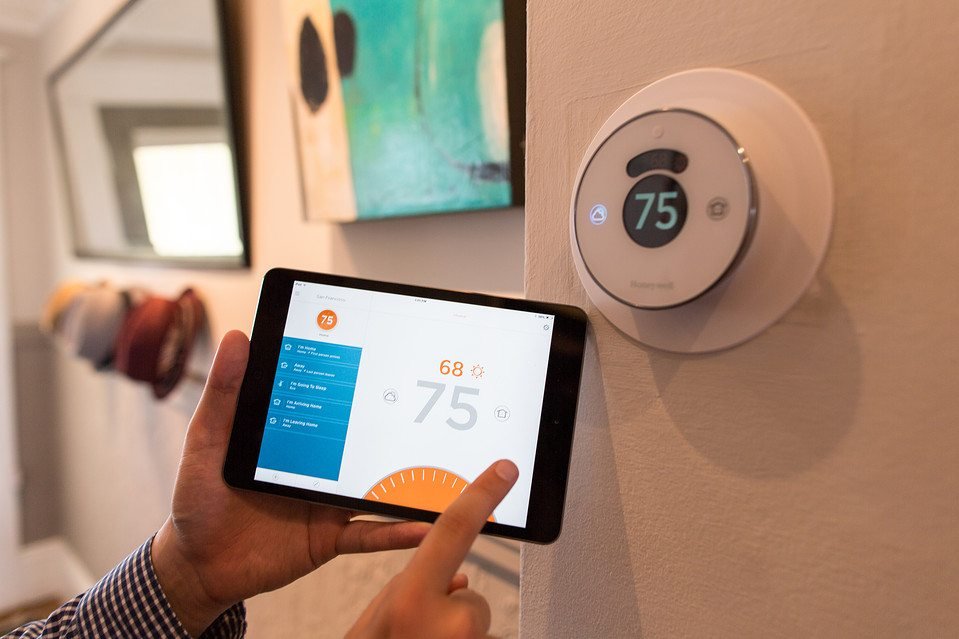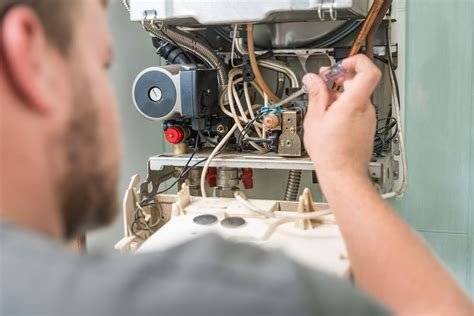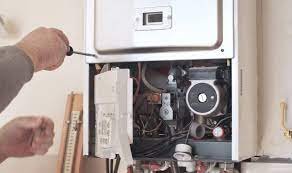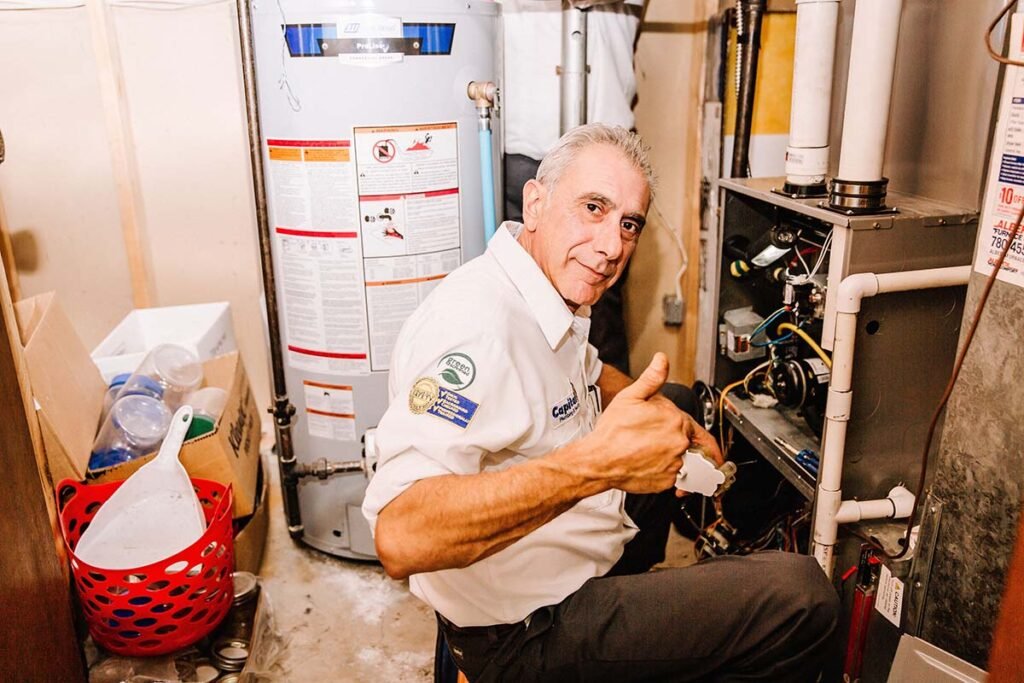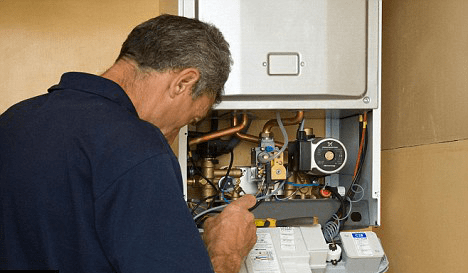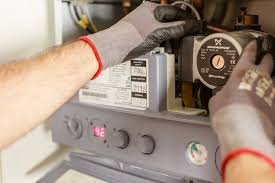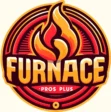Furnace Installation Namao - Your Reliable Heating Experts
Furnace Pros Plus is your trusted partner for all your heating requires. With years of experience, we concentrate on providing first-class heating solutions to keep your home warm and comfy. Our group of experienced service technicians devote themselves to supplying specialist heater installation, upkeep, and repair work services. We understand the importance of a correctly operating heater, particularly during the colder months. We focus on performance, cost, and customer fulfillment in every task (big or small). Whether you need a new heater, a regular check-up, or emergency situation repair work, rely on Furnace Pros Plus for trustworthy and effective heating services that ensure comfort and convenience.
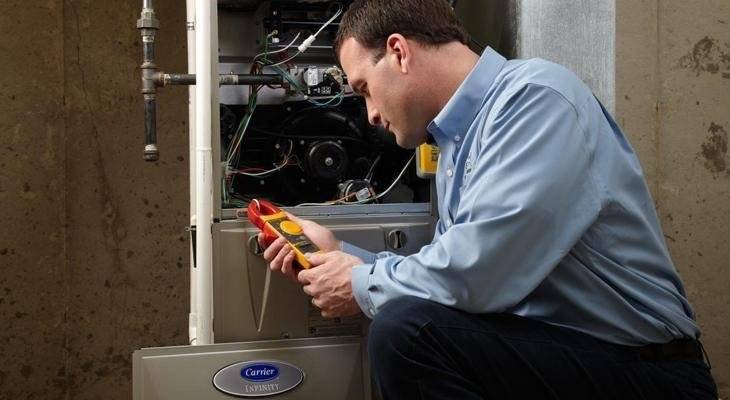
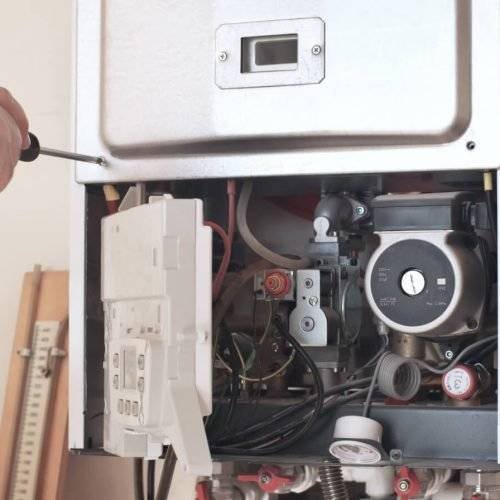
Who Are We?
Domestic Furnace Replacements and Repairs
Furnace Pros Plus stands out as the premier heater installation and repair work contractor in Namao, Alberta, thanks to its unequaled commitment to quality, client service, and know-how. With years of experience in the heating and cooling industry, Furnace Pros Plus has developed a track record for providing trusted and effective services tailored to the unique climate and needs of Namao locals.
The company’s commitment to excellence starts with its group of certified specialists. Each service technician is not just highly proficient and well-informed about the current heater innovations but likewise dedicated to ongoing training and advancement. This makes sure that every installation or repair work is carried out with the utmost accuracy and current methods, guaranteeing superior performance and longevity of your furnace.
Furnace Pros Plus comprehends the importance of a well-functioning heater, particularly during the extreme Namao winter seasons. That’s why they offer a quick response to ensure that any heater emergency situation is handled quickly and successfully, lessening discomfort and potential threats. Their 24/7 schedule is a testimony to their commitment to customer fulfillment and security.
Moreover, Furnace Pros Plus utilizes just the highest quality products and products in all their setups and repair work. By partnering with leading makers, they ensure that every part of your furnace system is durable and effective, supplying optimal heating and lowering energy costs. This commitment to quality, extends the life of the heater, supplying more worth for the investment.
In addition to their technical know-how, Furnace Pros Plus masters client service. They focus on clear interaction, supplying comprehensive consultations and transparent rates without concealed costs. Their personalized approach suggests that every service is tailored to the particular needs and spending plan of their customers, making sure that you feel valued and pleased with every interaction.
For these factors and more, Furnace Pros Plus is the leading option for homeowners requiring heater installation and repair work services in Namao, showing an unsurpassable mix of quality, know-how, and customer-focused service.
How can we help you?
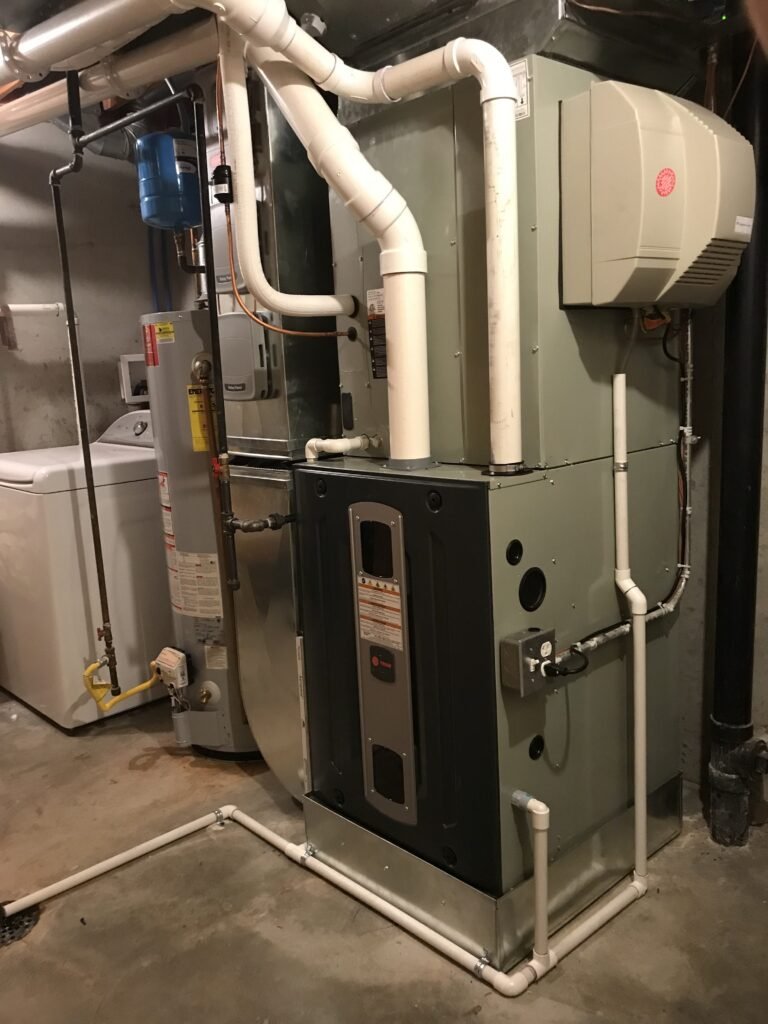
Comprehending the Cost of Installing a Modern Furnace
Introduction
A working heater is necessary when it comes to keeping a comfy and warm home during the colder months. Nevertheless, there comes a time when setting up a new heater is inevitable.
Comprehending the costs involved in this process is important for house owners to plan and spending plan accordingly. This thorough guide explores the numerous factors affecting the cost of setting up a new heater.
Elements Affecting Heater Setup Expenses
Kind of Furnace:
- Gas Furnaces: Popular for their performance, they typically cost more in advance however offer lower operating costs.
- Electric Furnaces: They are cheaper than gas heaters. Nevertheless, electric models tend to have greater functional costs due to electrical energy rates.
- Oil Heating systems: These are less common and can be more costly due to the cost of oil.
Heater Size and Capability
- Square Footage: The size of your home directly impacts the capacity needed for the heater.
- BTU Rating: Higher BTU rankings correspond to more powerful heaters, which can increase the cost.
Performance Rankings
Yearly Fuel Utilization Performance (AFUE):
Higher AFUE rankings indicate better performance however likewise featured a higher cost.
Brand and Quality
Top-tier brand names typically command greater rates due to their credibility for quality and longevity.
Installation Complexity
- Existing System: Updating from an old system might require additional work and cost.
- Ductwork: The condition and layout of existing ductwork can affect installation intricacy.
- Ease of access: Hard access to the installation website can increase labour costs.
Labour Expenses
Labour costs vary by region. In addition, the intricacy of the installation can affect labour costs.
Additional Expenses to Consider
- Permits: Some regions require licenses for heater installation.
- Inspections: City laws might require post-installation examinations for security compliance.
- Thermostats: Updating to a smart thermostat can incur additional costs.
Average Cost of Heater Installation
While rates can vary widely based upon the factors discussed above, here are some typical cost varieties for heater installation:
- Gas Heating systems: $2,000 to $5,000.
- Electric Furnaces: $1,000 to $2,500.
- Oil Heating systems: $2,500 to $6,000.
These are rough price quotes and can vary based upon particular home requirements.
Cost-Saving Tips.
Research and Compare.
Get multiple quotes from different specialists to ensure competitive rates.
Look For Rebates and Incentives.
Look for energy performance refunds provided by energy companies or federal government programs.
Consider Long-Term Cost Savings.
Buying a more effective heater can reduce energy expenses in time.
Conclusion
Setting up a new heater is a substantial investment, and comprehending the costs involved is necessary for any house owner. By considering the type of heater, installation intricacy, labour costs, and additional expenditures, house owners can better get ready for this required upgrade. Remember to look for multiple quotes, check out offered refunds, and think about long-term energy savings when deciding.
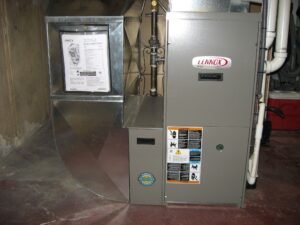
The Right Size Heater for Your Home: A Comprehensive Overview
Introduction
Selecting the ideal size heater for your home is important for making sure effective heating and convenience during the colder months. A heater that’s too small will not keep your home warm, while one that’s too large can trigger unneeded energy usage and irregular heating. This guide will assist you figure out the ideal heater size for your home.
Comprehending Heater Sizing: BTU and Performance
We measure the size of a furnace in British Thermal Units (BTU). One BTU is the energy needed to raise the temperature of one pound of water by one degree Fahrenheit. When selecting a furnace, 2 essential factors play a role: the BTU ranking, indicating the heater’s heating capacity, and its performance ranking, measured in Yearly Fuel Utilization Performance (AFUE).
Determining Your Home’s Heating Needs
You need to determine your home’s heating requires to figure out the proper heater size. The computation thinks about factors like square video footage, climate zone, insulation quality, window type, and home layout. Typically, you need roughly 30-60 BTUs per square foot. Nevertheless, this varies based upon your home’s particular qualities.
Climate Zone and Its Influence On Heater Size
Your geographical area significantly influences the heater size needed. Houses in colder areas, such as [area], require more BTUs per square foot than those in milder climates. Speak with a heating expert for particular suggestions.
The Role of Home Insulation in Heater Sizing
Great insulation decreases the amount of heat loss, indicating you can opt for a smaller heater. Evaluate your home’s insulation in the walls, attic, and windows. Updating insulation can be an affordable method to reduce heating needs.
Considerations for Different Kinds Of Furnaces
There are numerous types of heaters, like gas, electric, and oil. Each type has unique sizing factors to consider. Gas heaters prevail and effective, electric heaters are more uncomplicated and much safer however typically more costly to run, and specialists set up oil heaters where gas isn’t offered.
Value of Specialist A/c Evaluation
A professional HVAC evaluation is invaluable. Professionals think about all variables, including ductwork and home layout, to advise the optimal heater size. They can carry out a Manual J computation, the industry requirement for figuring out heating and cooling loads.
Energy Performance and Cost-Effectiveness
Selecting a furnace with a high AFUE ranking is important for energy performance and cost savings. Modern heaters have AFUE rankings between 80% and 98%, indicating the portion of fuel converted into heating. While high-efficiency heaters are more costly in advance, they can lead to considerable savings in the long run.
Dealing With Typical Misconceptions About Heater Sizing
A typical misconception is that a larger heater is constantly better. Nevertheless, an oversized heater can lead to brief cycling, where the heater often switches on and off, lowering performance and life-span. Conversely, an undersized heater has a hard time to heat your home effectively.
Long-Term Benefits of the Right-Sized Furnace
Selecting the right-sized heater has long-term benefits, including constant convenience, lower energy expenses, lowered carbon footprint, and less upkeep problems. It’s a balance between in advance costs and long-term savings.
Summary: Making an Educated Decision
Selecting the ideal size heater is a choice that impacts your home’s convenience and energy performance for years to come. By comprehending the essentials of heater sizing and seeking professional assistance, you can make an informed choice that makes sure optimal heating for your home.
Remember, the key to an effective and comfy home lies in selecting the ideal heater and routine upkeep and considering other factors like insulation and climate. With this thorough guide, you are fully equipped to select the best heater for your home, supplying heat and convenience for many winter seasons.

Replace vs Repair Heater: A Sweeping Overview
Introduction
Deciding whether to replace or fix your heater is a substantial choice for any house owner. The option impacts your instant convenience and security and has long-term monetary implications. This thorough guide will check out numerous elements to think about, helping you make a notified choice.
Comprehending Your Furnace
Life expectancy and Types
Heating systems typically have a life-span of 15-20 years. The two main types are gas and electric, each with different upkeep and functional costs.
Signs of Difficulties
Typical signs that your heater might need attention include uncommon noises, inconsistent heating, and increased energy expenses.
When to Consider Repairing Your Heater
Repair is typically the best option for small problems or heaters that are relatively brand-new and still under warranty.
Cost-Effectiveness
Repairing can be more economical for small problems. Nevertheless, regular repair work might show a much deeper problem.
Environmental Impact
Repairs typically have a lower environmental effect than changing the entire system.
When Replacement is the Very Best Choice
You need to think about replacement if your heater is near the end of its life-span, repair work are becoming progressively costly, or if it could be more energy effective.
Long-lasting Cost Cost Savings
While the initial cost is greater, a new heater can be more energy-efficient, conserving you cash on energy expenses.
Technological Developments
Newer models come with innovative innovation, such as clever thermostats, which offer better temperature level control and performance.
Weighing Your Options
Cost Analysis
Compare the cost of repair work in time versus the one-time expenditure of a new heater.
Energy Performance
Evaluate how your present heater’s performance is affecting your energy expenses.
Home Worth
Think about how a new heater might increase the worth of your home, particularly if you prepare to sell in the future.
Expert Suggestions
Seeking Professional Opinion
Seek advice from heating and cooling specialists to assess the state of your present heater and get price quotes for repair work and replacement.
Value of Routine Maintenance
Routine upkeep can extend the life of your heater, whether you choose to fix or replace it.
Summary
In conclusion, deciding to fix or replace your heater depends on numerous factors, including age, condition, cost, and energy performance. By considering these factors and seeking professional advice, you can make a decision that makes sure convenience, security, and monetary vigilance for your home.
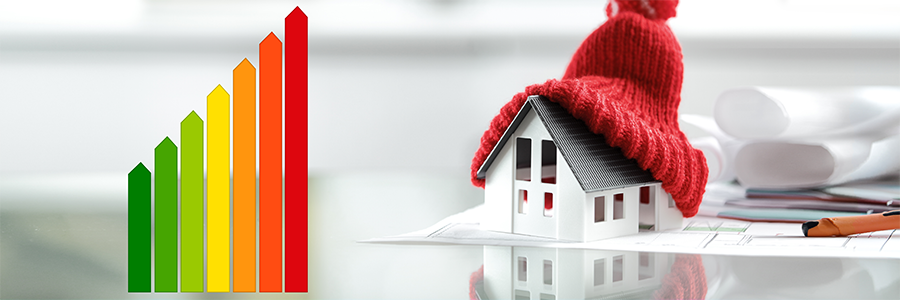
What Season is the Least Expensive to Change The Heater?
Will a Modern Energy-Efficient Heater Lower Your Home Insurance Coverage?
Introduction
Home upkeep can be a substantial investment, particularly when it involves important systems like heating. One of the most significant costs house owners face is changing their heater. Nevertheless, timing this replacement can lead to considerable savings. This short article explores the best time of year to replace your heater, considering cost-effectiveness and functionality.
Comprehending Heater Replacements
The Need for Replacement
Before diving into timing, it’s important to understand why and when you need to replace your heater. Typical indications include regular repair work, heating inefficiency, and the system’s age (generally beyond 15-20 years). Changing an out-of-date or malfunctioning heater improves heating performance and makes sure security and convenience during colder months.
Elements Affecting Heater Prices
Several factors affect heater rates, including the type of heater, brand name, capacity, and the intricacy of installation. Seasonal demand is another considerable aspect, typically ignored, yet it plays an important role in figuring out the cost.
Finest Time for Replacement: Off-Season
Why Select Off-Season?
The off-season, primarily spring and early fall, is normally the most inexpensive to replace a furnace. The demand for heating systems is lower during these durations than during the peak winter season. Lower demand typically causes more competitive rates from makers and installers.
Benefits of Off-Season Replacement
- Lower Expenses: Minimized demand can lead to discount rates and more customer negotiating power.
- Availability of Technicians: HVAC service technicians are less hectic during these times, making sure more flexible scheduling and quicker installation.
- Adequate Time for Research: The off-season gives house owners adequate time to research study different heater models and alternatives without the pressure of instant requirement.
Planning Ahead
Utilizing the off-season requires preparation. Expect the requirement for replacement and schedule it when the demand is low. This foresight conserves cash and avoids the trouble of a furnace breaking down in the middle of winter season.
Winter season: The Peak Season
Challenges of Winter Replacement
- Higher Prices: The demand for heater installation and repair work peaks during winter season, leading to greater rates.
- Busy Schedules: Discovering a service technician might be more challenging, and you might have to wait longer for an appointment.
- Emergency Replacements: If your heater breaks down in winter season, you might have to opt for an instant replacement, which leaves little room for cost contrast or negotiation.
Other Considerations
Energy Performance and Rebates
Buying energy-efficient models might be more costly in advance however can lead to long-term savings. Also, keep an eye out for refunds and tax credits provided for energy-efficient home improvements.
Value of Routine Maintenance
Routine upkeep can extend the life of your heater, delaying the requirement for replacement. It’s an essential aspect of home care that you need to take note of.
Summary
Timing your heater replacement can lead to considerable savings. The off-season, especially spring and early fall, is typically the most economical period for this investment. Planning, considering energy performance, and keeping your present heater can optimize expenditures and ensure a warm, comfy home.
Introduction
Homeowners typically ponder whether upgrading their home appliances and systems can lead to savings on their home insurance coverage premiums. One common concern is whether setting up a new heater lowers home insurance coverage costs. This short article looks into how a new heater installation might affect your home insurance coverage, offering insights into insurance plan, danger management, and potential savings.
Comprehending Home Insurance Coverage Premiums
Before diving into the specifics of heaters and insurance coverage, it’s important to understand what factors affect home insurance coverage premiums. Insurance companies assess numerous factors, including:
- Home Age and Condition: Insurance coverage Agents see more recent homes with updated systems as lower dangers.
- Place: Geographic area and regional climate can significantly affect insurance coverage rates.
- Security Functions: The presence of alarms, smoke alarm, and other security devices can reduce premiums.
The Impact of a New Heater on Home Insurance Coverage
Setting up a new heater in your home can have several implications for your home insurance coverage:
- Minimized Risk of Fire and Gas Leaks: Modern heaters with innovative security features reduce dangers like fire or gas leaks. This danger decrease can be beneficial in the eyes of insurance coverage companies.
- Improved Energy Performance: Newer heaters are typically more energy-efficient, leading to lower energy costs and a minimized environmental footprint, indirectly affecting insurance coverage factors to consider.
- Improved Home Worth: Updating to a new heater can increase your home’s market price, which might affect the coverage you need.
Prospective Insurance Coverage Discount Rates
Some insurer offer discount rates for home improvements that reduce danger. These might include:
- Protective Device Discounts: You might receive a discount if your brand-new heater includes innovative security features.
- Green Home Discounts: Some insurance providers supply special discount rates for setting up energy-efficient devices.
Documents and Appraisal
To take advantage of a new heater installation for insurance coverage benefits, think about the following:
- Expert Setup: Ensure a licensed professional installs your heater, which can be a requirement for insurance coverage benefits.
- Keep Records: Preserve all invoices and documents for the heater purchase and installation.
- Inform Your Insurance Company: Notify your insurer about the upgrade. They might require an evaluation or additional documents.
Considerations Before Updating
While a new heater can offer benefits, think about the following:
- Cost vs. Benefit Analysis: Evaluate if the long-term savings on insurance coverage and energy expenses validate the initial cost of a new heater.
- Insurance Plan Evaluation: Talk to your insurance coverage representative to understand how a new heater might particularly affect your policy.
Summary
Updating to a new heater can reduce your home insurance coverage premiums by lowering danger and enhancing your home’s security and performance. Nevertheless, the effect varies based upon individual insurance plan and the particular features of the heater. It’s advisable to speak with your insurance coverage provider to understand the full benefits and implications of a new heater installation.
FAQs
Q: How much can I save on my home insurance coverage by setting up a new heater?
A: Cost savings vary based upon the insurance coverage provider and the particular features of the brand-new heater. Seek advice from your insurance coverage representative for comprehensive details.
Q: Are there any particular types of heaters that are more beneficial for insurance coverage discount rates?
A: Heating systems with innovative security features, high energy performance rankings, and those that satisfy particular environmental requirements are typically more beneficial.
How to Get ready for a Furnace Installation
Setting up a new heater in your home is a substantial investment and an essential upgrade to your home. It boosts the convenience of your home and improves energy performance. Proper installation preparation is important to ensure the installation process is smooth and worry-free. This short article will guide you through the required steps to get ready for a furnace installation.
Comprehending Your Heating Needs
Assessing Your Area: The initial step is to assess the size of your space and understand the heating requirements. A too-large or too-small heater for your home can lead to inefficiency and greater energy costs. Consulting with a heating professional to figure out the ideal heater size is essential.
Selecting the Right Heater: There are numerous heaters, including gas, electric, and oil. Each has pros and cons; the option depends on your area, spending plan, and individual preference. Research and speak with specialists to make a notified choice.
Pre-Installation Preparation
Selecting a Qualified Installer: We can not overemphasize the importance of selecting a qualified and experienced installer. Look for specialists with good reviews and appropriate accreditation. They will ensure an appropriate installation and guide you through the process.
Cleaning the Area: Ensure the area where you prepare to set up the heater is clear of any mess. A tidy area supplies simple access to the installation group and speeds up the process. Get rid of any important or fragile items from the area to prevent unintentional damage.
Preparing for Downtime: Depending upon the intricacy of the installation, your heater might be down for a couple of hours to a day. Plan accordingly, particularly if the installation is during colder months.
During Setup
Access to Your Home: Ensure the installers have simple access to your home, that includes making sure that parking is offered and a clear course to the heater area.
Interaction: Stay offered to respond to any concerns the installers might have. Clear interaction can assist deal with any problems rapidly and ensure your installation goes as planned.
After Installation Checks
Examine the Installation: Once the installation is total, inspect the work with the installer. Ensure that the installation is total which the area is tidy.
Comprehending the System: Have the installer describe the functioning of the brand-new heater, including how to alter filters and the fundamental troubleshooting steps.
Warranty and Documents: Guarantee you receive all required documents, including warranty details and operating handbooks. Keep these documents in a safe place for future referral.
Conclusion
Preparing for a furnace installation involves comprehending your heating requires, selecting the ideal heater, and selecting a qualified installer. By following these steps, you can ensure a hassle-free installation process and enjoy the convenience and performance of your brand-new heater for years to come. Remember, a little preparation goes a long way in making sure a smooth and successful heater installation.
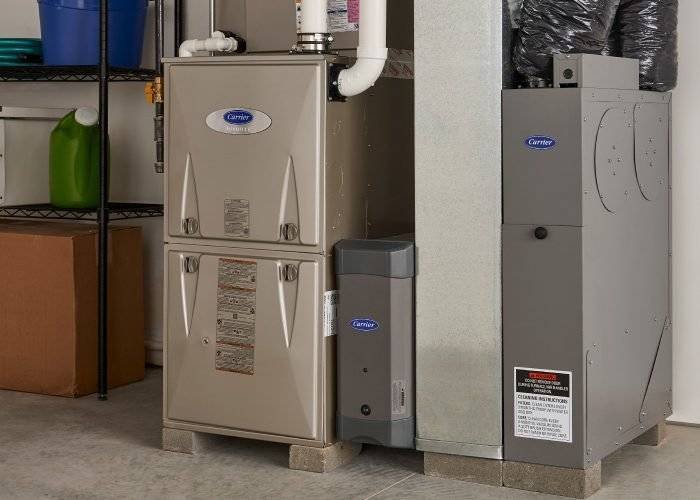
Our Work


